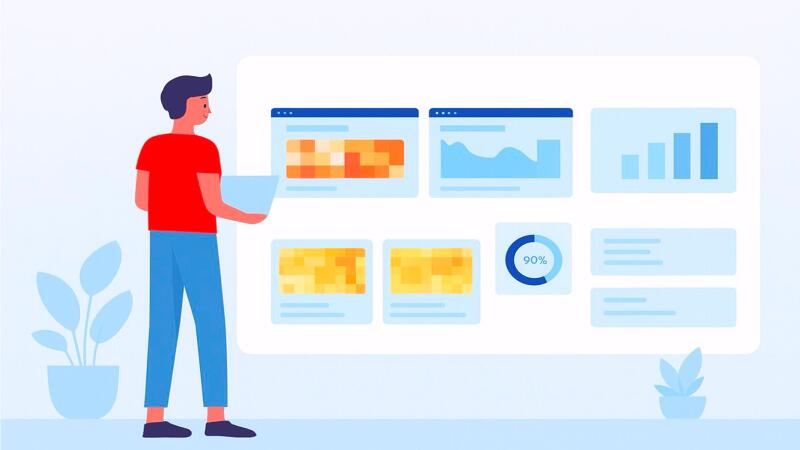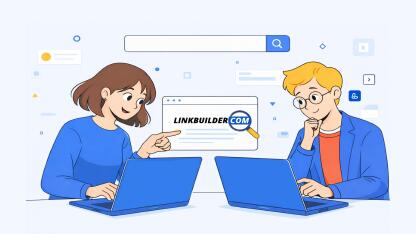What are AI SEO Tools
AI SEO tools are software solutions that utilize artificial intelligence and machine learning to streamline, accelerate, and improve the accuracy of tasks in search engine optimization. Their goal is not just to automate routine actions but to help make more informed and effective decisions based on data.
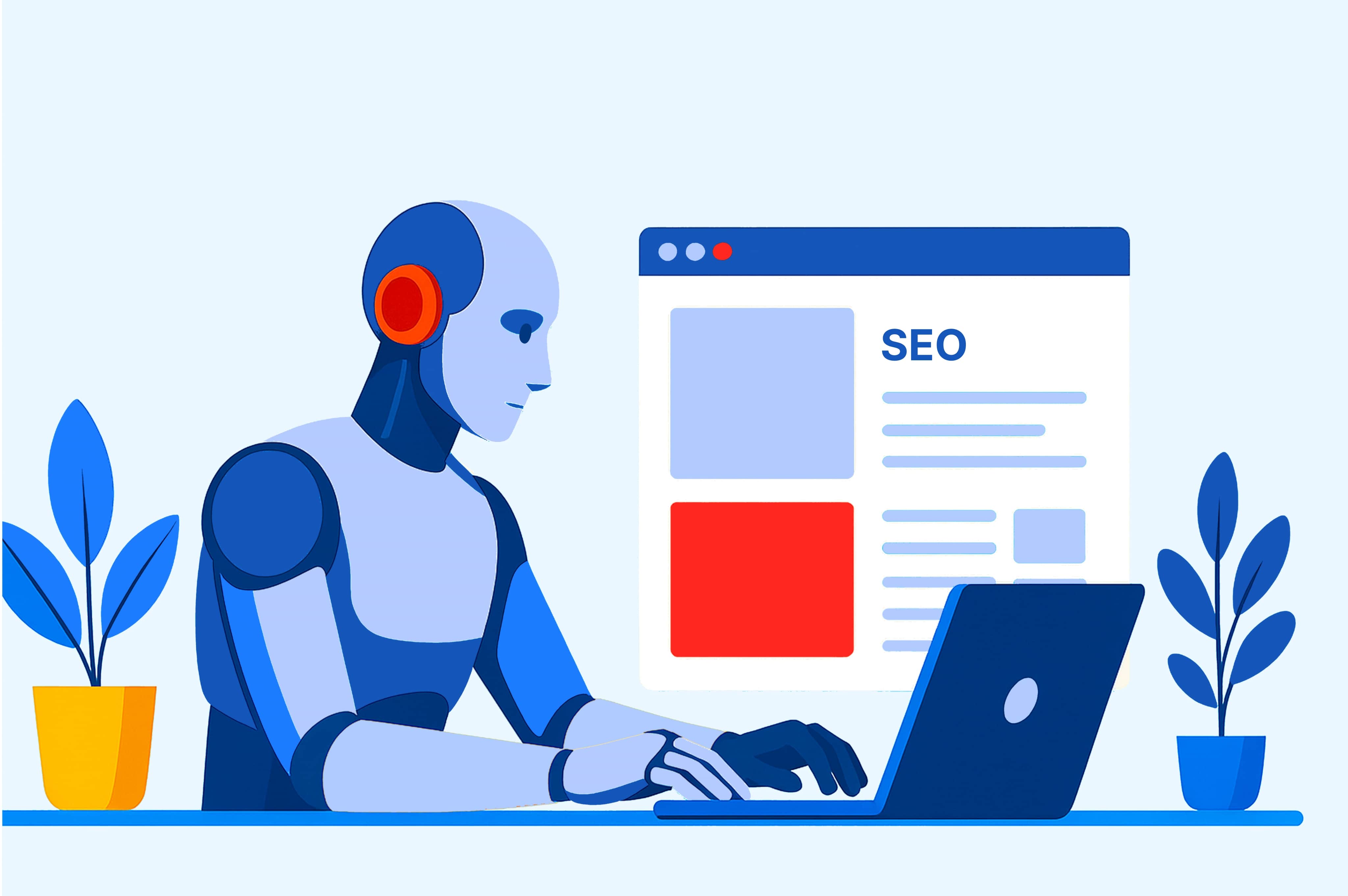
These tools can:
- Analyze keywords and search demand
- Generate SEO-optimized content
- Evaluate competitors and search engine results
- Suggest topics and structure for future pages
- Monitor SEO software ranking, user behavior, and technical errors
- Assist in link building, content optimization, and auditing
AI in SEO does not operate on rigid algorithms like classic scripts; instead, it learns from data and identifies patterns, making it particularly effective in the face of frequent changes to search algorithms.
How is AI Different from Traditional SEO Tools?
| Feature | Classic Tools | SEO AI Tools |
|---|---|---|
| Data Approach | Static, manual analysis | Learning from large data sets |
| Content | Requires manual writing | Generation and optimization with intent consideration |
| Trend Adaptation | Delayed response | Real-time reaction |
| User Intent Handling | Limited | Deep analysis and understanding of queries |
| Scalabilit | Resource-limited | High, automated |
Brief Development History
AI technologies in SEO have evolved gradually – from simple automated systems to sophisticated solutions that can today predict user behavior, optimize content, and support strategic planning.
- 2010-2015: Initial Steps in Automation
At this stage, tools for parsing, keyword clustering, and position monitoring emerged. The primary focus was on data collection, but AI as such was not yet applied.
- Services like Screaming Frog, Ahrefs, and Semrush gained popularity.
- Automation was limited to technical audits and position tracking.
- 2015-2020: The Influence of Machine Learning
Google introduced RankBrain – the first AI system to impact ranking. This changed the very understanding of SEO, with a new focus on intent, user behavior, and text meaning.
- The first neural networks analyzing behavioral signals emerged
- Queries became more conversational and complex.
- Tools started to consider semantic relevance and UX.
- 2020-2022: The Boom of Generative Models
With the release of GPT-3 and similar models, AI began to be widely implemented in text generation. Services like Jasper, Writesonic, and Frase started using AI to create SEO content.
- The spread of SEO text generators
- Tools learned to adapt content to queries, cluster, and analyze
- Automation encompassed not only analysis but also content creation.
- 2022-2024: Integration and Personalization
AI became part of the SEO platform ecosystem. The concept of intelligent SEO solutions emerged, integrating generation, analytics, forecasting, and technical auditing into one interface.
- Development of SGE (Search Generative Experience) by Google
- AI assistants emerged that "understand" the site structure and business goals.
- AI is integrated into CMS, link-building tools, and e-commerce platforms.
- 2024-2026: Advanced AI Optimization and Predictive SEO
AI moves from content generation to full-cycle SEO strategy and predictive analytics. Tools not only create content but also forecast traffic trends, detect ranking risks, and optimize internal linking and site architecture automatically.-
AI-driven SEO platforms integrate competitive analysis, predictive keyword research, and automatic content adaptation.
-
Real-time monitoring of search intent changes and algorithm updates becomes standard.
-
Automation expands to CRO, user behavior prediction, and hyper-personalized content recommendations.
-
In this evolving landscape, the emergence of AI software for SEO and AI-powered SEO tools has revolutionized the way businesses approach search engine optimization, offering advanced capabilities and insights.
Why Use AI in SEO in 2026?
- Time and budget savings – particularly relevant for small and medium-sized businesses
- Adaptation to new search realities, including generative results (SGE)
- Ability to scale without increasing team size
- Gaining a competitive advantage through more accurate and faster solutions
- Mаintaining quality when dealing with large volumes of content
Advantages of Using AI Tools in SEO
Using AI tools provides numerous advantages for SEO professionals.
- It offers the ability to adapt to changes in search algorithms quickly. AI for analyzing rankings and traffic helps determine what changes are necessary to improve ranking.
- AI programs for SEO specialists help automate tasks such as link building and technical SEO. This significantly enhances work efficiency and reduces the likelihood of errors.
Incorporating these AI-powered SEO tools, such as AI SEO optimization tools or best AI SEO tools, can provide a significant boost to your SEO strategy.
Modern SEO AI optimization tools, such as SEO content generators and AI-powered SEO platforms, offer intelligent solutions for creating content that meets the needs of both users and search engine algorithms. These tools also provide more accurate competitor analysis and assist in developing strategies to increase search traffic.
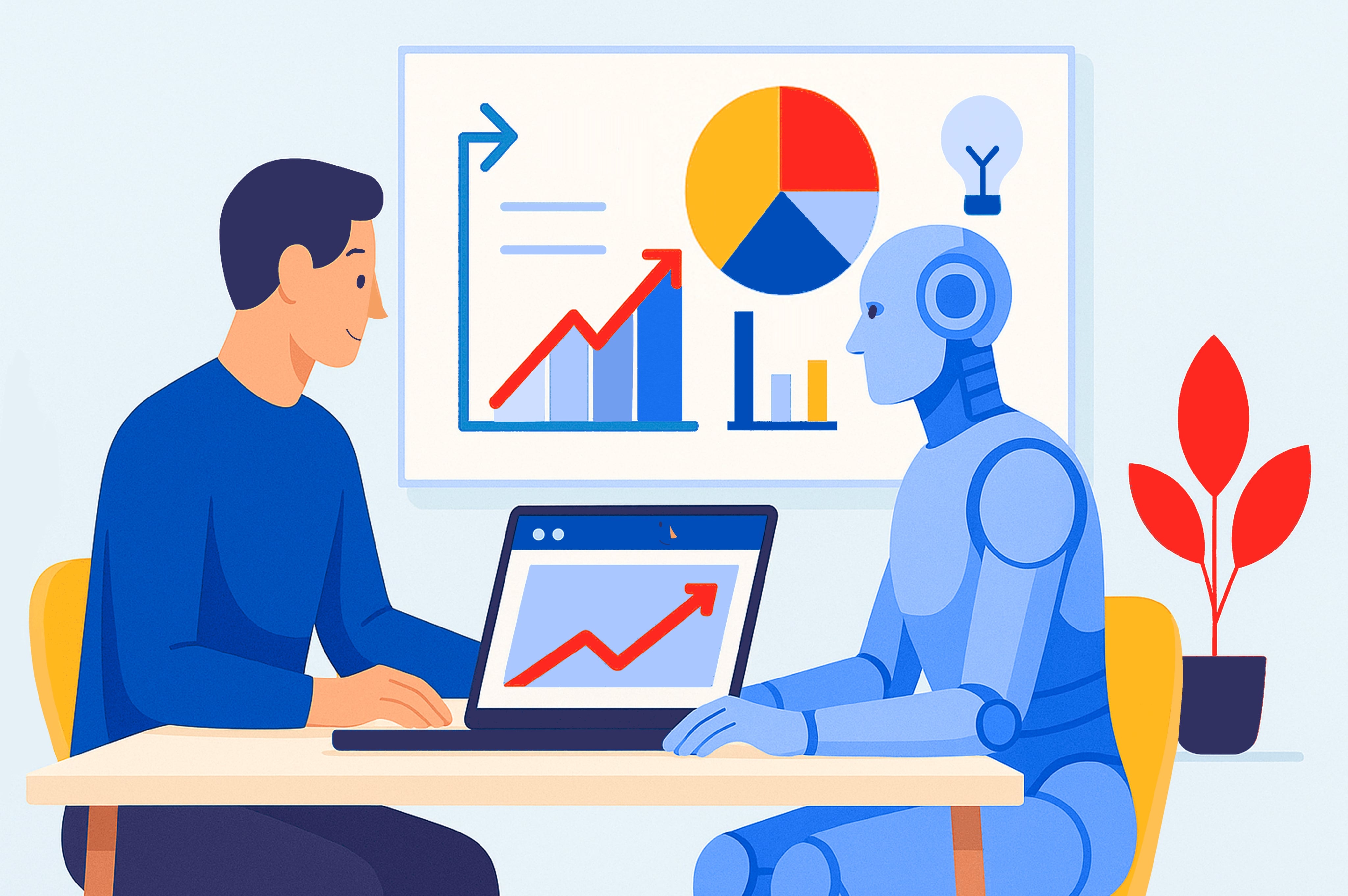
1. Saving Time and Resources
AI can automate dozens of routine tasks: from keyword clustering to drafting content. This is especially important for agencies and in-house teams with limited budgets or resources.
- Quick generation of SEO texts
- Automatic competitor and SERP analysis
- Simplified technical site diagnostics
2. Deep Analytics and Forecasting
AI for position and traffic analysis can identify patterns that are difficult to notice manually. Some neural networks can even predict changes in demand or user behavior.
- Trend analysis of queries and topics
- Traffic segmentation by intent
- Early detection of ranking drops
3. Content Personalization and Relevance
AI SEO optimization tools can analyze user intent and adjust the text, structure, and layout of a page to meet their expectations.
- Optimization for intent and behavioral signals
- Improvement of page structure and UX
- Increased engagement and time on site
4. Scalability
With AI, you can quickly create dozens of landing pages, blogs, or product descriptions without losing quality. This is particularly relevant for e-commerce, marketplaces, and SaaS platforms.
- Rapid generation of template-based texts
- Centralized content management
- Mass updates of outdated pages
5. Reducing Human Error
AI doesn't tire, forget, or get distracted. It helps reduce the number of errors and improve the stability of SEO results.
- Unified approach to optimization
- Minimization of repetitions, duplications, and empty pages
- Quality control at the preparation stage
When AI SEO Tools Are Especially Useful
- Large volume of pages and content
- Niches with rapidly changing demand
- Need for quick trend optimization
- Mass launch of new websites or landing pages
- Ongoing work with semantics and clustering
Key AI Tools for Keyword Analysis
Neural networks for website promotion can analyze vast amounts of data, enabling more accurate predictions of changes in search engine algorithms. One of the main trends is the use of AI for generating SEO content. This allows for the creation of relevant texts that meet the demands of both users and Google’s algorithms.
- Neural networks for ranking improvement: Allow analysis and prediction of changes in search engine algorithms.
- SEO automation tools: Smart next-generation SEO services that simplify routine tasks and enhance work efficiency.
- AI-driven SEO platforms: Online tools that offer comprehensive solutions for content optimization and link building.
- AI-powered SEO text generators: Ensure the creation of content that meets the needs of both users and search engines.
The use of AI-based seo tools not only improves rankings on Google but also significantly enhances the efficiency of SEO specialists, providing them with intelligent solutions to achieve their goals.
Overview of popular tools
- Semrush
It is one of the leading solutions on the market, actively integrating artificial intelligence into its features. This tool not only facilitates keyword research but also analyzes competitors, tracks rankings, and provides content suggestions. Semrush utilizes AI to generate SEO content, enabling specialists to find optimal solutions for their strategies more quickly. With intelligent SEO assistants, Semrush has become one of the best SEO online tools for optimization.
Subscription Price- From $199 per month or $165/month with an annual payment
Cons:
- High cost, especially for agency and business plans.
- Limitations on keyword tracking and projects in the basic plan (e.g., 500 keywords and five projects for Pro).
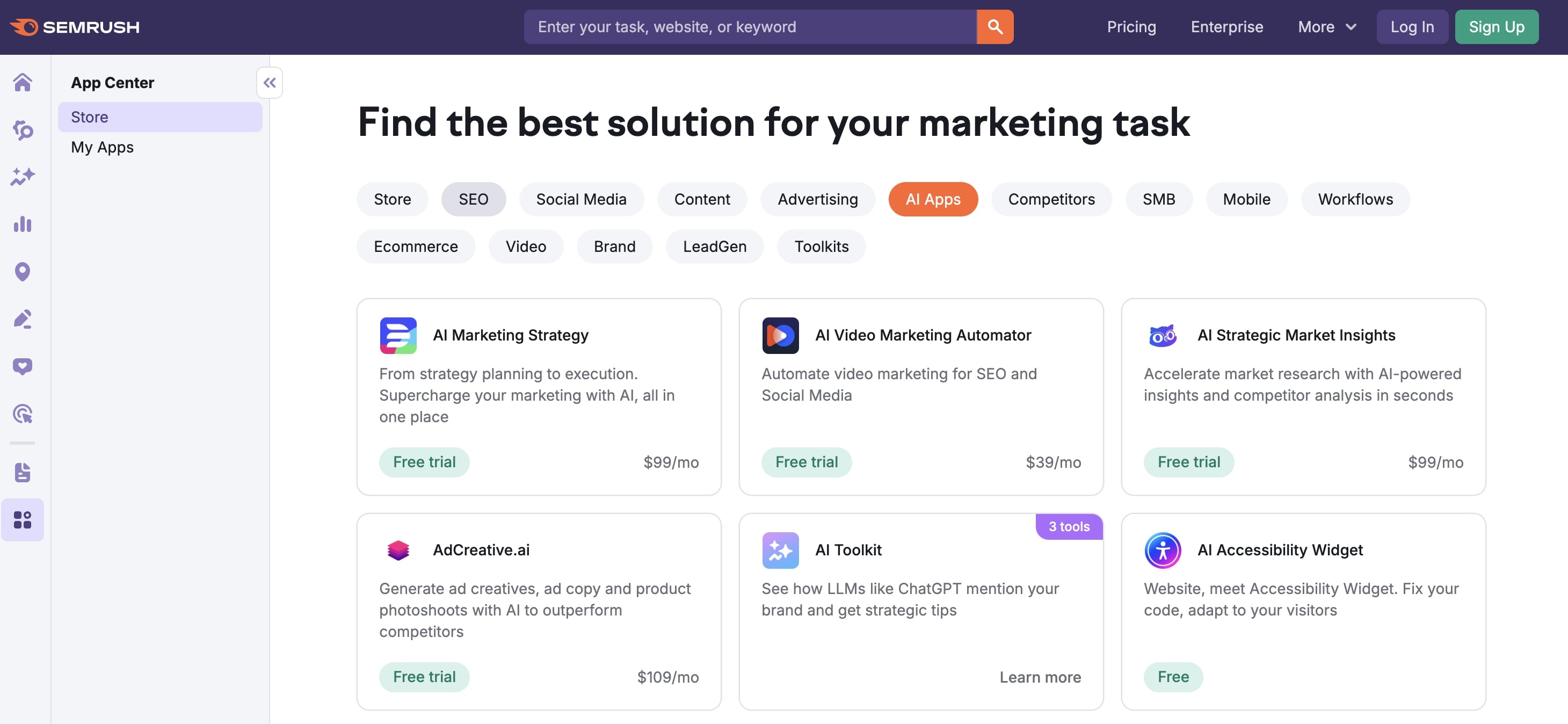
- Ahrefs is another powerful tool that actively uses AI for keyword analysis. It helps identify the most effective keywords, analyze links, and conduct technical SEO. AI-based SEO automation in Ahrefs allows specialists to respond quickly to algorithm changes and understand how neural networks improve ranking and increase traffic. With innovative tools for search traffic growth, Ahrefs is among the top AI tools for optimization.
Subscription Price
- From €129/month to €449/month
Cons:
- The “credits” system (crawl credits, export, and API) can lead to unexpected additional costs.
- Lite or Standard plans may be limited for growing agencies or large projects.
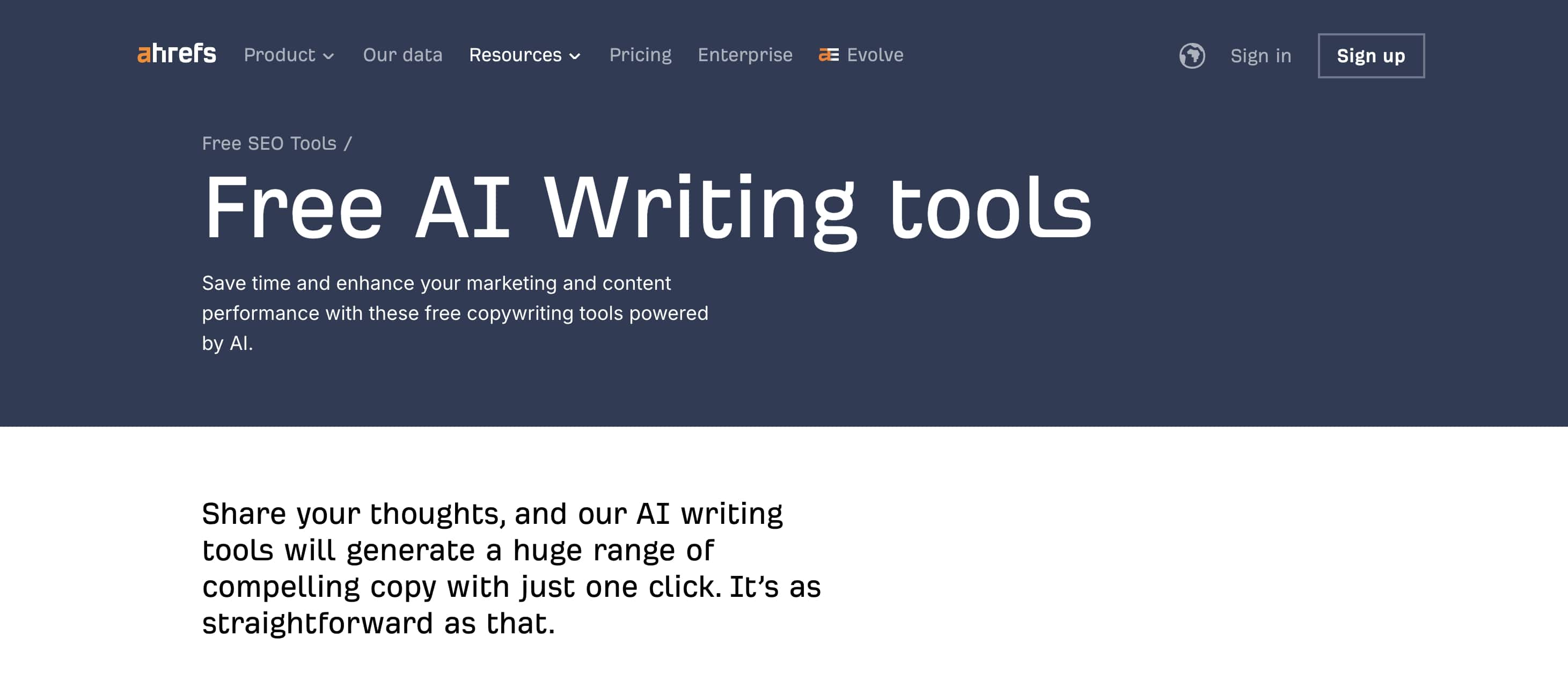
- The Google Keyword Planner is a classic tool for keyword research, but its integration with AI opens up new possibilities. It now offers more accurate forecasts and recommendations based on big data analysis. Utilizing neural networks for website promotion, the Google Keyword Planner helps optimize content using neural networks, making it an indispensable tool for SEO specialists.
Subscription Price
- Free, but requires an active link with a Google Ads account
Cons:
- No competitor analysis, backlink analytics, or technical audit.
- Requires a Google Ads account, and the activation process may include entering payment information.
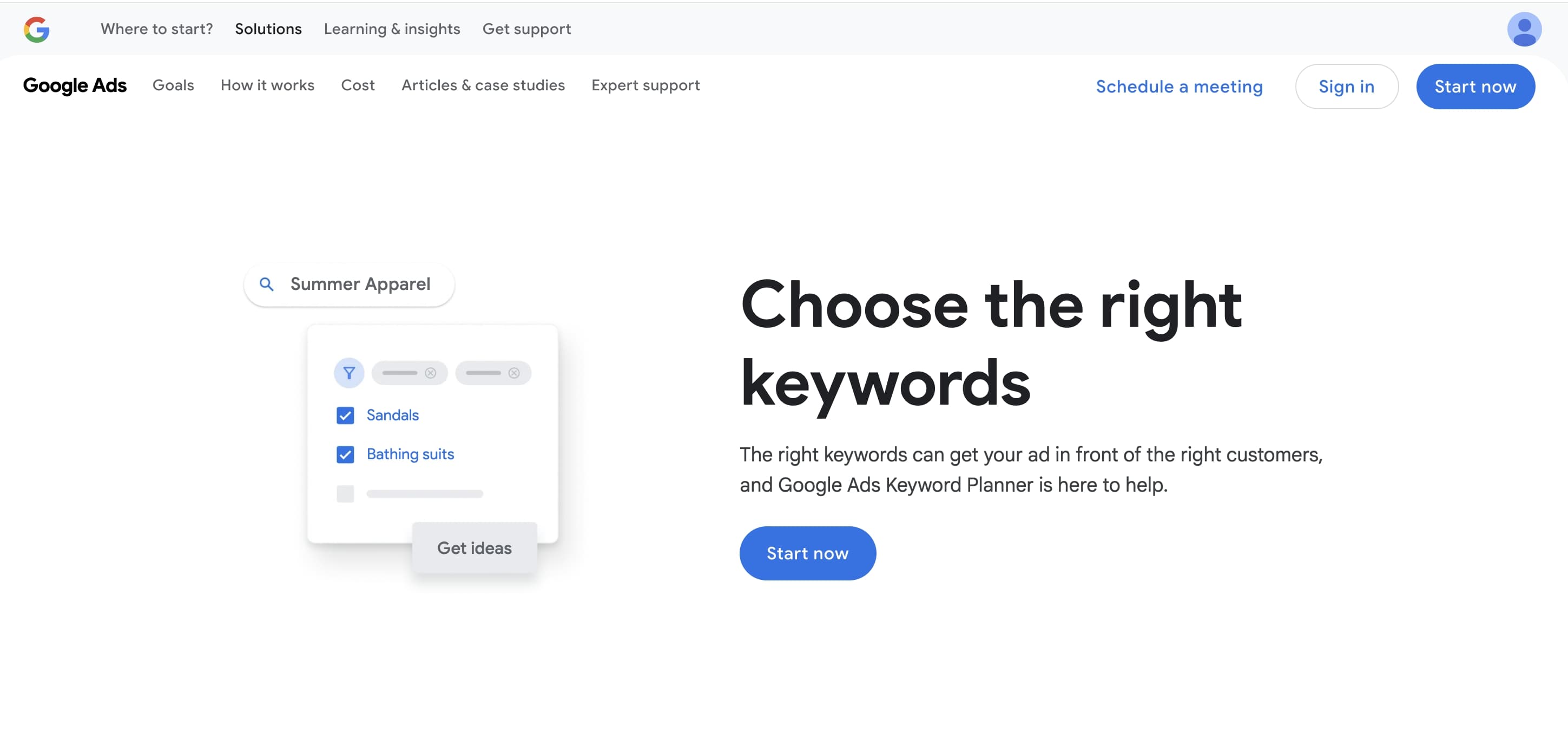
These AI SEO programs for specialists will help you not only improve your rankings on Google but also create more effective promotion strategies.
How to Choose Keyword Analysis Tools
Choosing the right keyword analysis tool can be a challenging task. Numerous advanced AI-powered SEO tools offer a range of features and capabilities. For content optimization using neural networks, it’s essential to evaluate not only functionality but also ease of use.
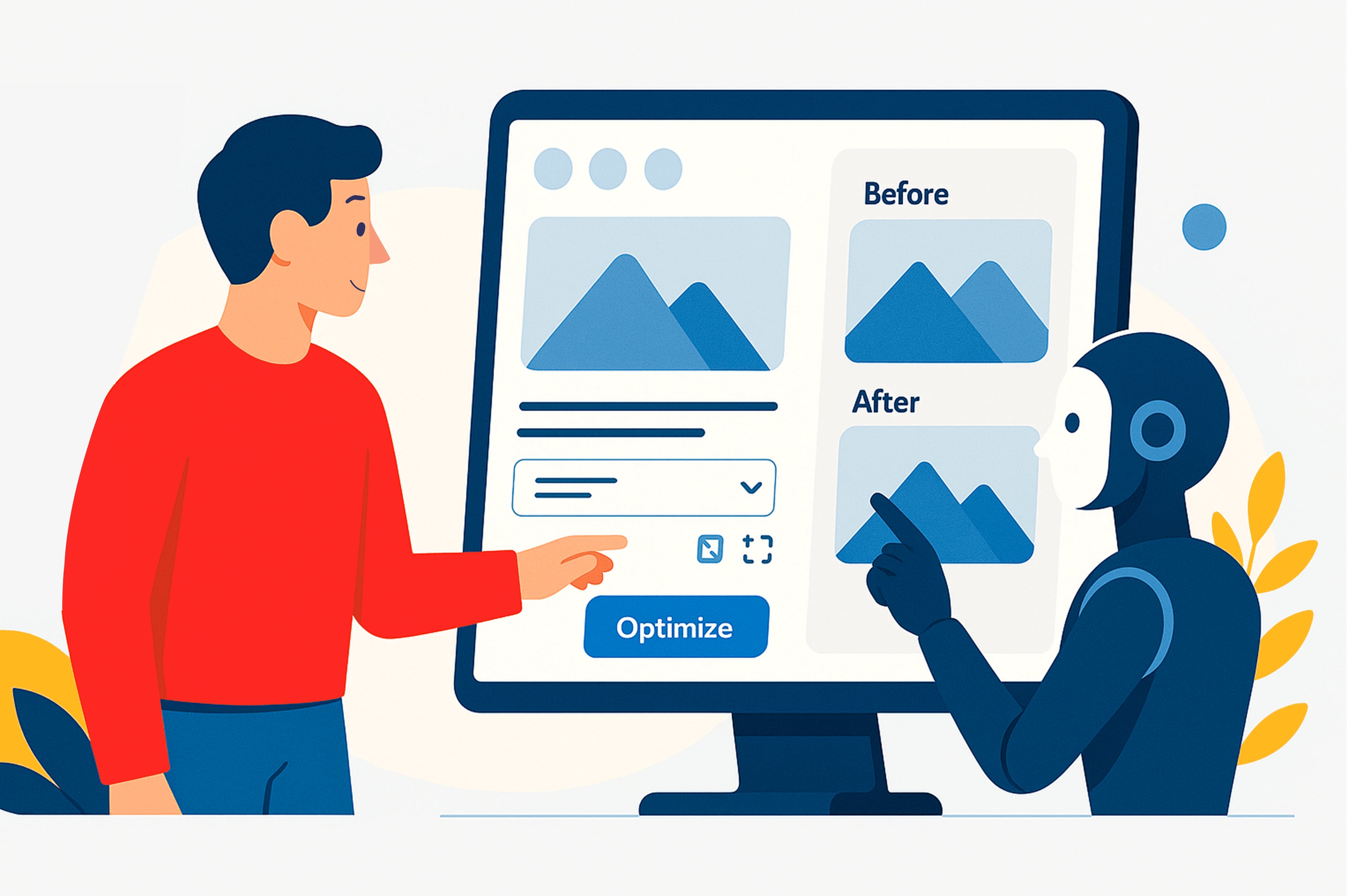
- Accuracy and Relevance of Data
Next-generation SEO tools should provide highly accurate data on keywords, including their popularity and competition. This enables a more precise evaluation of the potential effectiveness of key phrases.
- Integration with Other Services
SEO automation programs should easily integrate with other platforms and services, such as Google Analytics or tools for position and traffic analysis.
- User-Friendly Interface
Even the best AI tools for SEO should be intuitive and easy to use, so as not to complicate the work of specialists.
- Flexibility and Customization
Smart tools for search traffic growth should offer the ability to customize to the specific needs of a business, whether it be analysis of certain markets or niches.
- Support and Training
The availability of quality technical support and training materials will enable users to master the tools and effectively utilize their full potential quickly.
Checklist for Evaluating Tools
To simplify the selection process, you can use the following checklist:
- Does the tool provide up-to-date keyword data?
- Is there an AI-powered SEO automation feature?
- Does it support integration with other platforms?
- How simple and intuitive is the interface?
- Is there an option for customization to suit your needs?
- Is quality support and educational material provided?
- What volume of data is available within the subscription?
AI Tools for Content Optimization
In this section, we will explore how AI can assist in content optimization and highlight the best AI tools for SEO.
Content Generation with AI
- ChatGPT
ChatGPT is one of the most well-known AI-powered text generation tools. It allows for the creation of unique and informative articles that can be tailored to various thematic niches. ChatGPT offers:
- Automatic generation of SEO-optimized content.
- The ability to adapt the style and tone of the text to the audience.
- Tools for keyword analysis and their integration into the text.
Using ChatGPT in SEO helps not only with content creation but also with analyzing positions and traffic, making it a versatile solution for SEO optimization with AI-powered SEO tools.
Subscription Price
- $20 per month
Cons:
- Even with a Pro subscription, hallucinations and errors in output data are possible.
- Limitations on the number of Deep Research requests (250 requests per month with the Pro plan, fewer for Plus and free users).
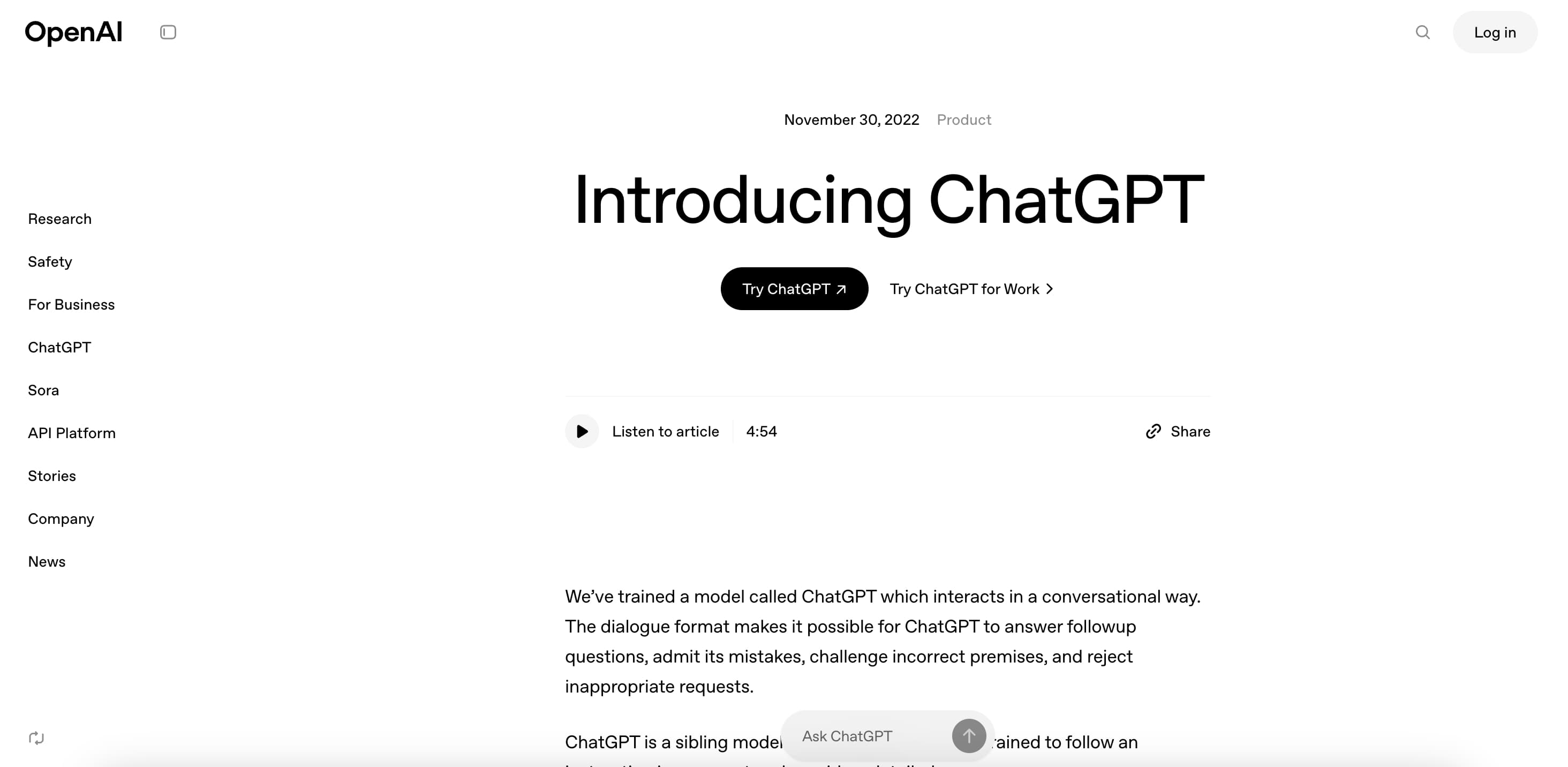
- Jasper AI
Jasper AI is another powerful content generation tool. Jasper AI offers:
- AI-driven SEO text generation tailored to specific queries.
- Integration with popular AI SEO platform like Semrush and Ahrefs.
- The ability to create content for blogs.
Subscription Price
- From $59 per month with an annual payment for one user
Cons:
- No single access plan at a fixed price (e.g., API access or additional user seats) – extra users and features cost more.
- Limitations on the volume of content created (the Boss Mode plan, for example, covers up to ~50,000 words per month).
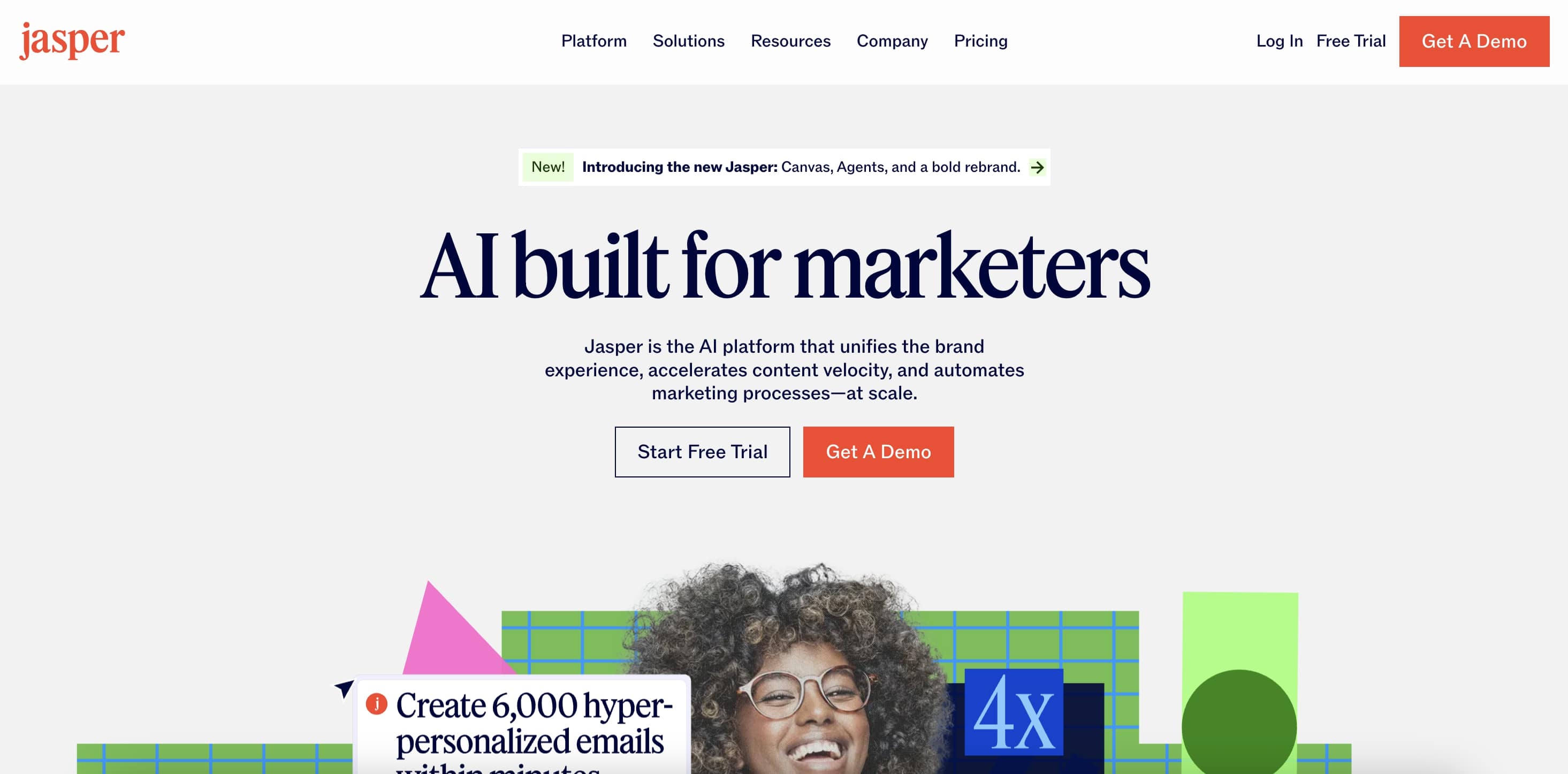
Analysis and Improvement of Existing Content
With the ever-changing search engine algorithms, it’s essential not only to create new content but also to analyze how existing content can be improved regularly.
- Surfer SEO
Surfer SEO is one of the best SEO recommendations tools that helps analyze and optimize content based on competitor data. This SEO content software for improving Google rankings allows you to:
- Determine the optimal number of keywords and their density
- Conduct a comparative analysis of content with niche query leaders
- Provide recommendations for improving page structure and adding new elements
Subscription Price
- $99/month for monthly payment (or $79/month for annual payment)
Cons:
- Costs can quickly increase when exceeding limits (AI credits and plans above Essential)
- Primary focus is on on-page SEO – no backlink analysis or technical SEO audits
- Risk of over-optimization: following recommendations "to the letter" can lead to keyword stuffing
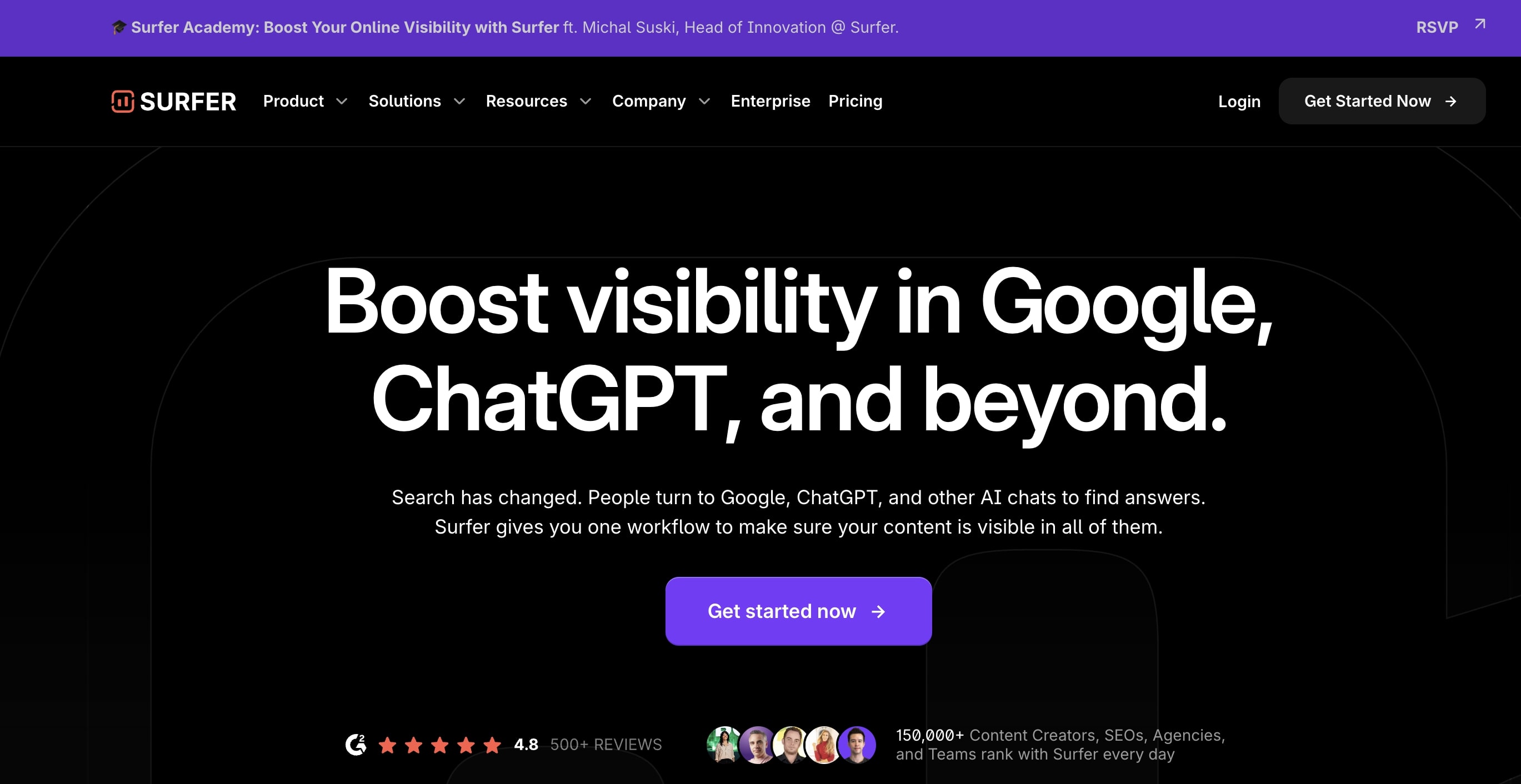
- MarketMuse
MarketMuse is an AI-powered SEO platform that focuses on in-depth topic analysis. It helps identify which aspects of a topic have not yet been covered by competitors and how content can be improved to achieve better search results. Advantages of using MarketMuse include:
- Generating topic clusters that organize content and strengthen its interconnectivity
- Evaluating content completeness and quality compared to competitors
- Providing recommendations for expanding topics and improving article structure
Subscription Price
- Free plan – available for one user, up to 10 requests per month. Paid plans start at $99/month.
Cons:
- Standard pricing has a high entry threshold: it needs to be thoroughly studied, especially by beginners
- Free version is too limited: too few requests and features for serious use
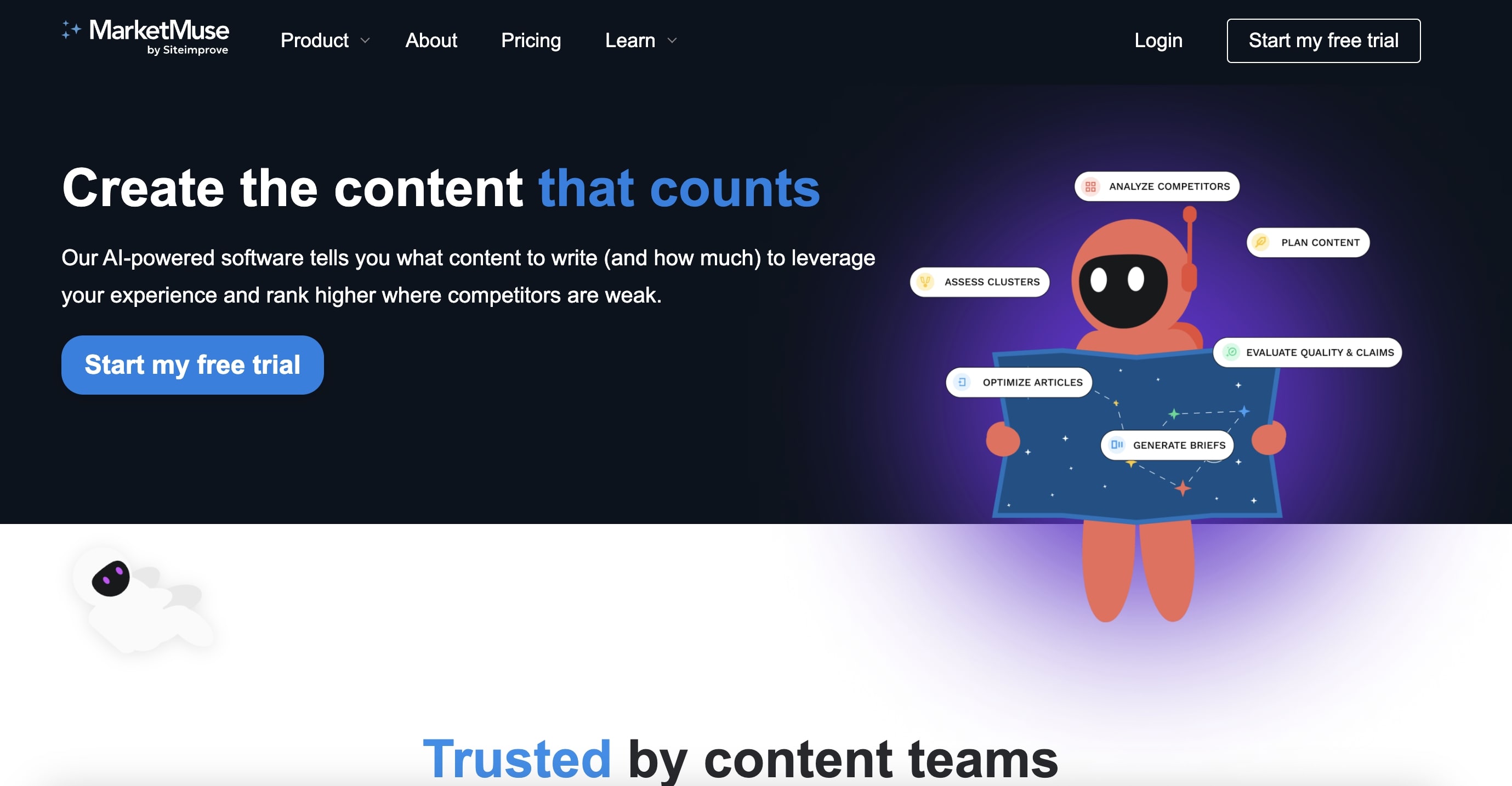
Usage Recommendations
- Use AI SEO text generators for regular content updates on your website.
- Integrate smart SEO services for keyword analysis and frequency tracking.
- Remember to test and adjust content based on changes in search engine algorithms.
AI Content Optimization Checklist
- Keyword Analysis
- Use tools like Semrush or Ahrefs to find high-competition and niche keywords.
- Implement keywords into the text using AI services to ensure their natural usage.
- Content Creation
- Apply AI-based text generators to create unique and relevant content.
- Tools like Copy.AI can help quickly generate ideas for new articles and posts.
- Analysis and Improvement
- Use AI to analyze SEO ranking tools and traffic to understand how content affects the overall SEO strategy.
- Technical Optimization
- Implement AI in technical SEO to speed up page loading times and improve user experience.
AI Tools for Technical SEO
Technical SEO is the foundation of successful website promotion in search engines, and modern AI-powered tools can significantly simplify this process. They help automate routine tasks, analyze data, and provide more accurate recommendations.
Site Crawling and Audit
Site crawling and audit are crucial steps that help identify technical issues and optimize the resource structure for better ranking.
- JetOctopus
- Description: Cloud-based crawler with AI-driven analysis features.
- AI Features: AI modules identify patterns in errors and suggest priority areas for correction.
- Pros: Deep integration with Google Search Console and log files, as well as visualization of site structure.
- From $343/month
- Price nearly doubles with JavaScript crawling enabled.
- Additional fees for Google Analytics and Search Console properties when managing multiple clients.
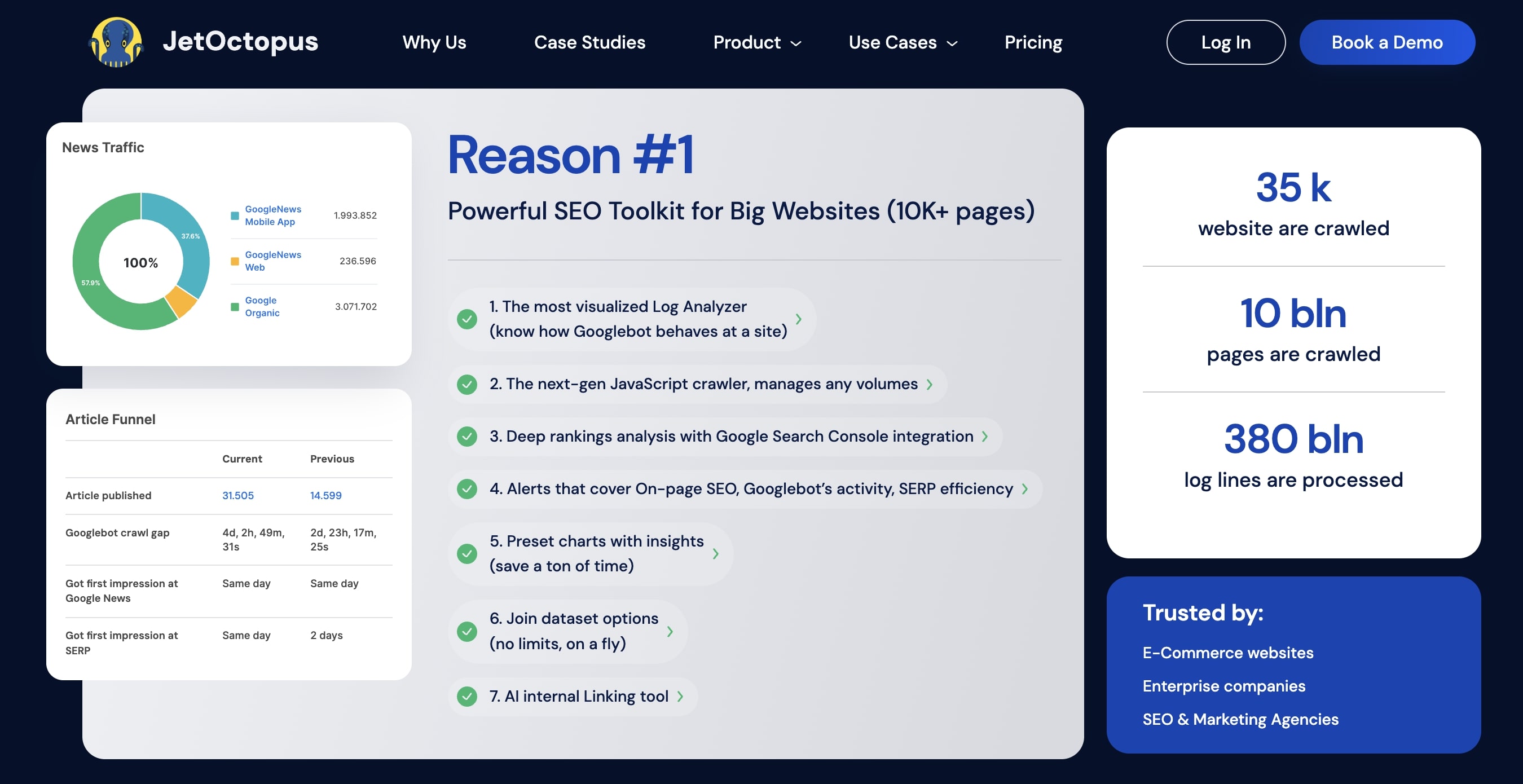
- Screaming Frog + GPT API
- Description: One of the most popular desktop crawlers. Can be integrated with OpenAI GPT.
- AI Features: Used for automatic analysis of meta tags, page content, and identifying duplicate elements.
- Pros: Customizable scripts and powerful filtering rules.
Subscription Price
- $279/year for a single-user license
Cons
- Free only up to 500 URLs, requires a paid license thereafter.
- Licensed per user, not per device. Costs differ for teams.
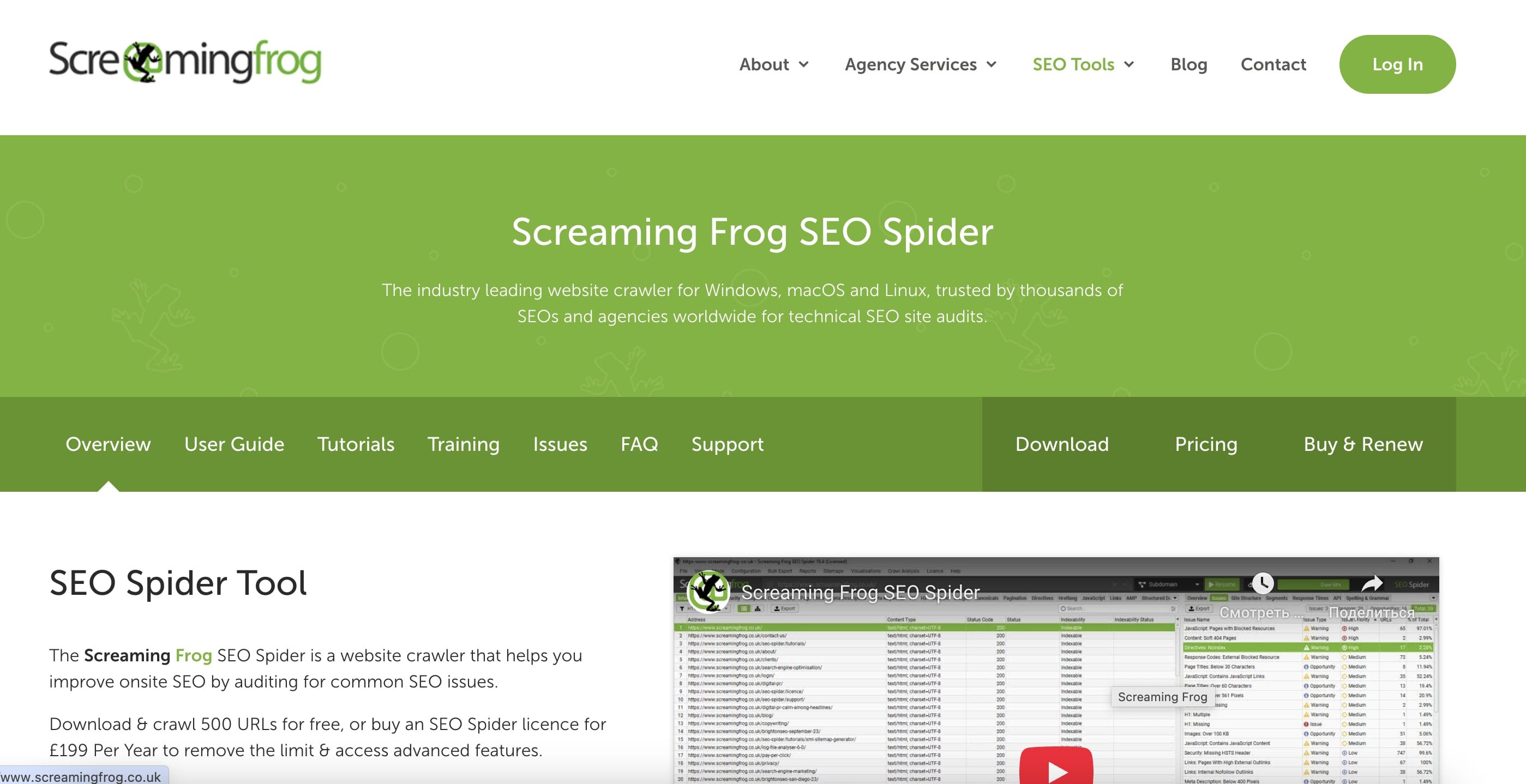
- Conductor
- Description: Continuous site monitoring with AI-driven insights.
- AI Features: Real-time identification of technical failures, smart alerts, problem-solving recommendations.
- Pros: Support for large sites, API access, and automatic error prioritization.
Subscription Price
- $99/month per user with a free 30-day trial
Cons
- More suitable for specific use cases, not a universal SEO solution
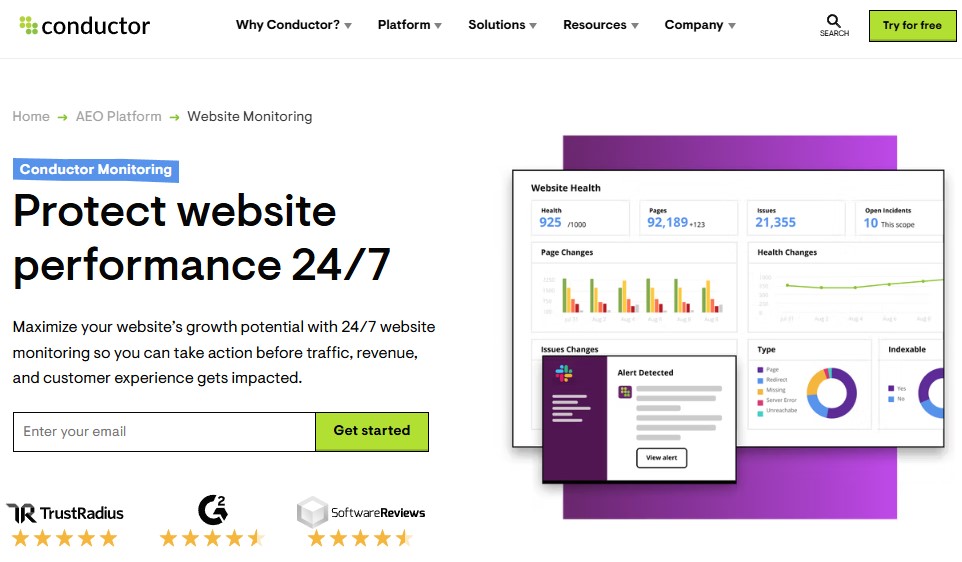
Page Load Speed Optimization
- NitroPack – Automatic performance optimization using AI.
Subscription Price
- From $7/month, depending on the plan, a free plan with limitations
Cons
- Free plan is limited
- Cost increases with traffic growth, custom plans needed for agencies
- PageSpeed Insights – Analysis and recommendations for speed improvement from Google.
Subscription Price
- Free, up to 25,000 API requests per day
Cons
- No interface for regular monitoring or analytics, only API.
- Daily and per-minute request limits with no option for expansion.
- Cloudflare – AI integration for site protection and acceleration.
Subscription Price
- Starting from $20/month for Pro plan
Cons
- More advanced features (WAF, Bot Management, CDN options) are available only on Pro or Business plans.
- Costs can increase due to the use of Workers, R2 storage, and other extensions.
- Pingdom Tools – Load speed monitoring with AI analysis elements.
Subscription Price
- From $10/month
Cons
- Free mode is limited to a 14-day trial period.
- Costs rise quickly with increased monitoring.
- GTmetrix – Intelligent reports and recommendations for speeding up websites.
Subscription Price
- From $5/month
Cons
- Free users are limited to only five tests and require registration.
- Pro plans can be expensive for team use.
Integration of AI in Technical SEO
- Website Load Speed Analysis
Google PageSpeed Insights enables automatic evaluation and optimization of page load speed. Fast load times enhance user experience and ranking.
- Indexing Error Check
AI-powered SEO tools, such as Screaming Frog SEO Spider, help identify indexing issues like duplicate content or broken links, which are crucial for improving ranking.
- Mobile Adaptation Assessment
The Mobile-Friendly Test also utilizes neural networks. It allows you to automatically check how well a site is optimized for mobile devices.
- URL Structure and Metadata Analysis
Content optimization using neural networks, like with Yoast, allows for improved URL structure and metadata, significantly impacting SEO promotion.
- Website Security Check
Next-generation SEO tools, such as Semrush, offer automated solutions for checking website security, including SSL certificate presence and protection against malware.
- Position and Traffic Monitoring and Analysis
Artificial Intelligence SEO tools, like in Ahrefs, provides regular monitoring of key metrics, helping to respond timely to changes.
AI-powered SEO solutions not only help identify issues but also provide actionable recommendations for their resolution. Next-generation SEO tools allow for the automation of the audit process, which significantly saves time and resources.
AI Tools for Link Analysis
Overview of Link Building Tools
- LinkBuilder.com
LinkBuilder.com is one of the leading link-building services, combining both comprehensive solutions and individual services, including outreach. You can order a full link-building cycle or use a set of tools for independent work.
Available features include competitor backlink profile analysis, selection of quality donors, monitoring of link dynamics, and anchor distribution with AI recommendations. You can read more about the tools in our article.
You can also check out the pricing for services and the full list of tools.
Subscription Price
- There is a free subscription. The Starter package costs $8, and Professional – $55
Cons
- Full access to the database and advanced features is available only with an active subscription

- PitchBox
This is an AI-powered SEO platform that streamlines the process of identifying and engaging with potential link donors. The service automatically analyzes relevant sites and generates personalized email templates – such AI tools in SEO save time and effort, allowing for a focus on strategically essential partnerships.
Subscription Price
- $165/month for the Pro plan (there is a 21-day free trial period)
Cons
- One of the most expensive tools for outreach
- Quite complex for new users or small teams
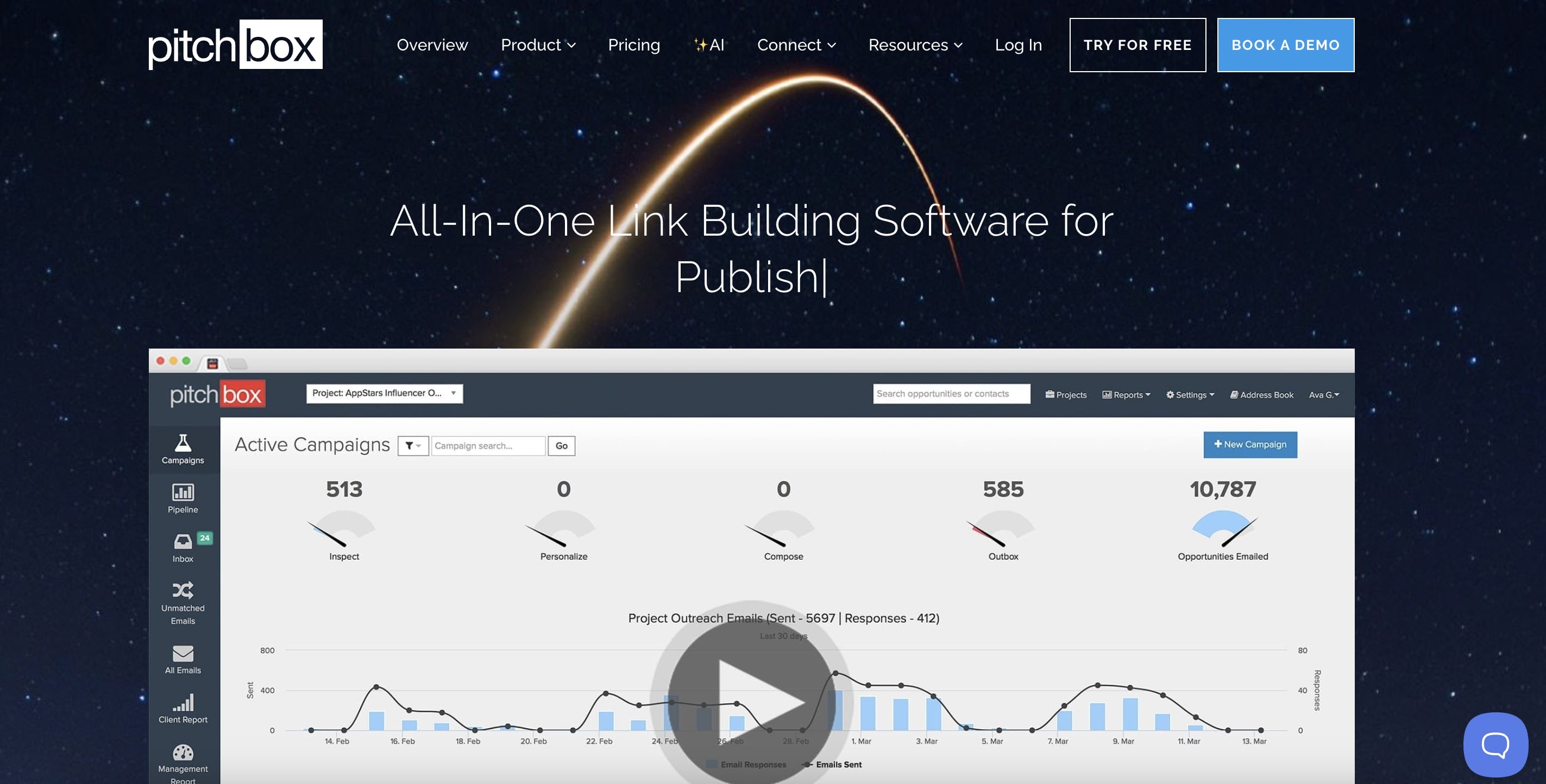
- Linkio
Another service from the TOP SEO recommendations tools of 2026 that offers AI-powered SEO automation. The program analyzes your current backlink profile and suggests strategies for improvement. Linkio utilizes AI to analyze rankings and traffic, guiding optimal anchor distribution and link frequency.
Subscription Price
- From $19.99/month for the Personal plan
Cons
- User support is at a medium level, no mobile app, and UX is sometimes criticized
- Limitations on the number of backlinks analyzed
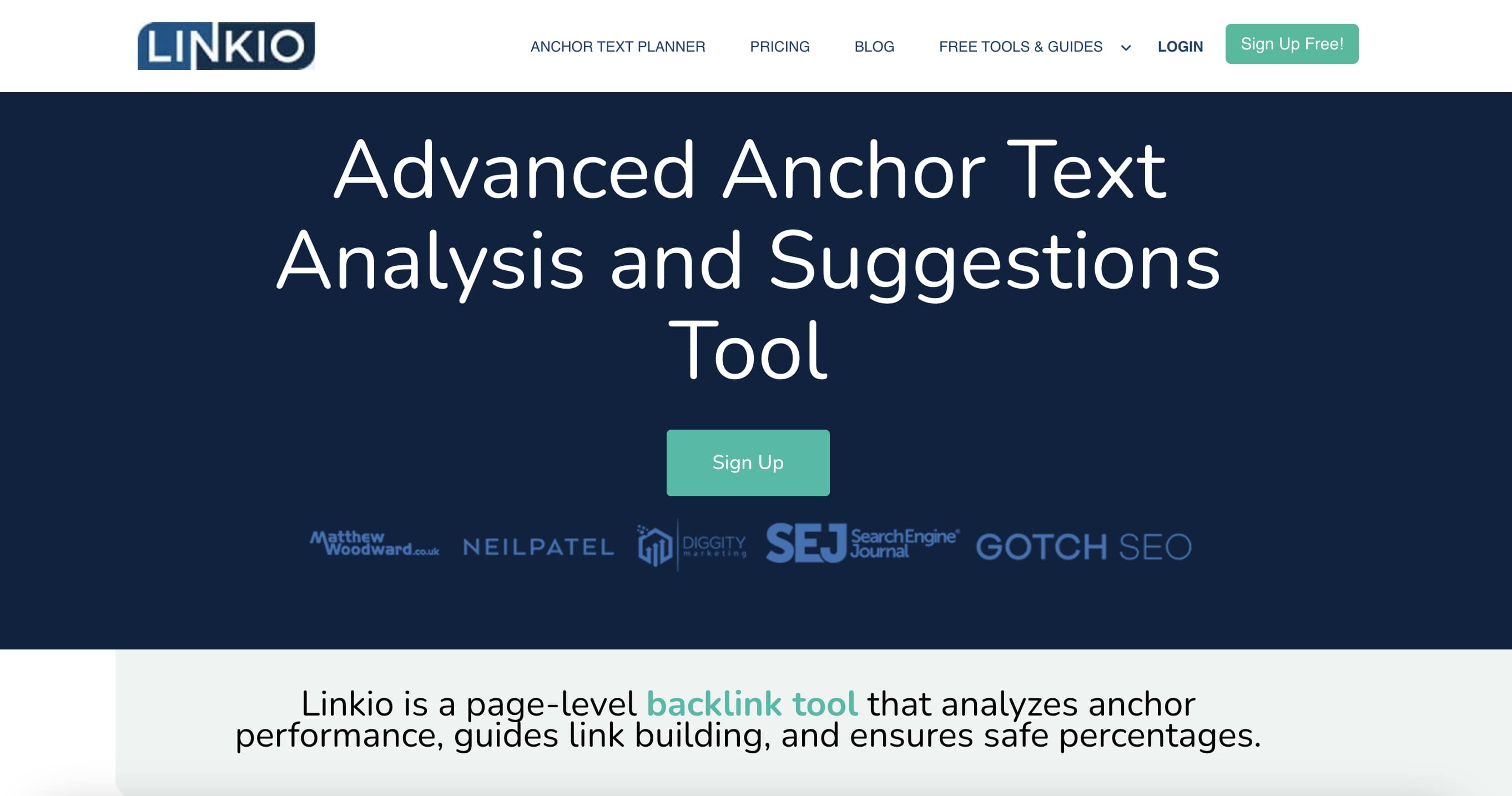
- Respona
A tool for creating and managing PR campaigns that includes AI for generating SEO content and link-building strategies. With Respona, you can automate the process of finding relevant guest post and link exchange opportunities, making it one of the best AI-powered SEO tools.
Subscription Price
- $100/month for the Starter plan
Cons
- The interface sometimes lags, and bugs may occur
- Limited advanced settings within the Starter plan
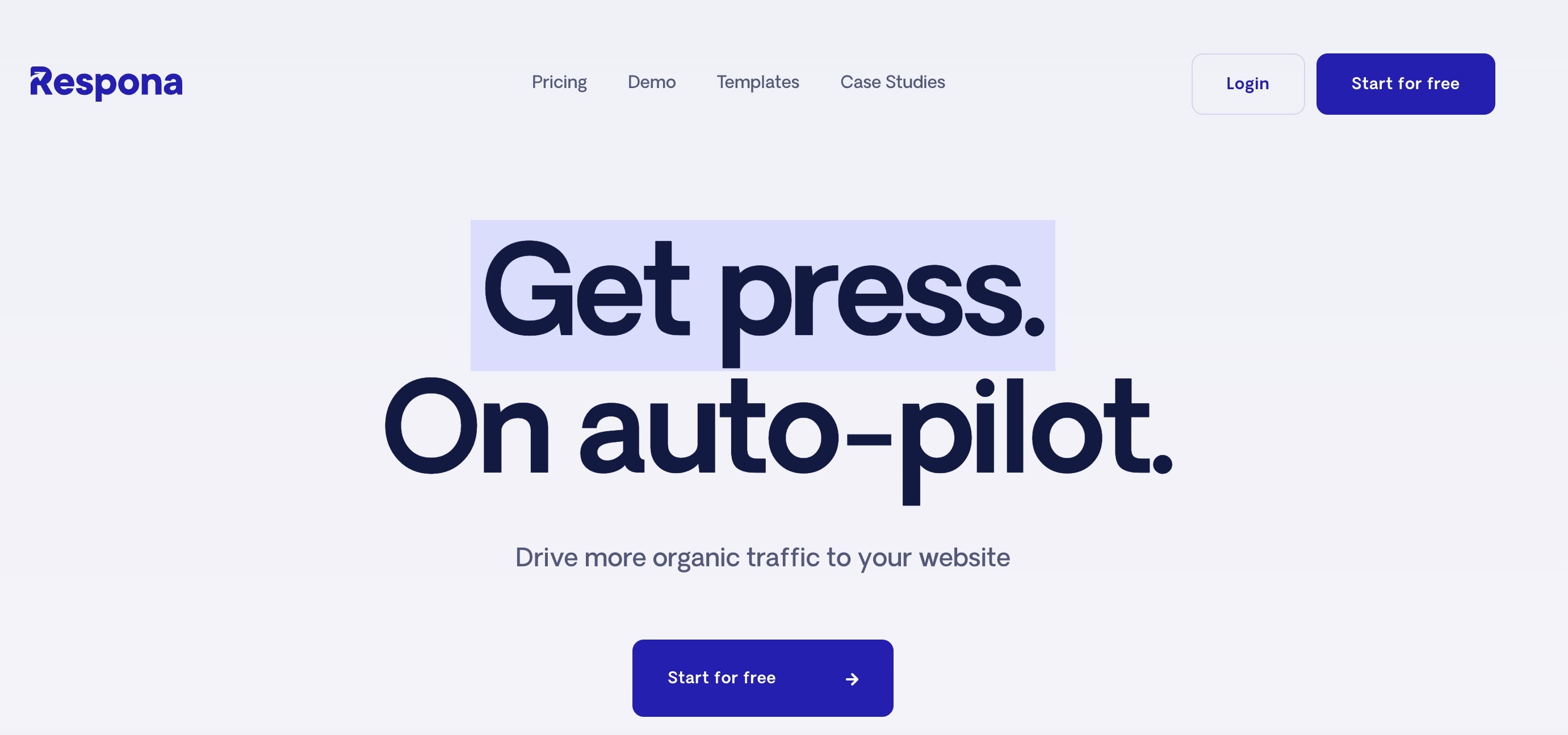
AI-Driven Forecasting and Analytics
Modern neural networks can not only analyze past data but also predict which topics will gain popularity in the coming weeks or months. This provides SEO specialists and content marketers with a significant advantage: they can create content in advance that is just beginning to capture the audience’s interest.
How it works: AI models process datasets from search engines, social networks, news resources, and forums. Based on these data, the neural network identifies patterns of growing interest in specific topics. For example, if the frequency of a particular query is increasing and similar discussions are simultaneously appearing on Twitter, Reddit, and TikTok, it signals an emerging trend.
Key Benefits:
- Automating SEO with AI reduces the manual routine of demand analysis
- AI for position and traffic analysis helps respond more quickly to changes in audience behavior
- Intelligent SEO assistants provide forecasts based on comprehensive data rather than intuition
Using AI SEO optimization tools, SEO professionals can leverage these insights to stay ahead in the competitive landscape.
Here are some top AI-powered SEO tools that can help with forecasting:
- AI Ranker by LinkBuilder.com – a free tool that uses artificial intelligence to analyze how well your site is represented in search results. You enter a domain, and the system automatically generates popular search queries related to your topic and sends them to ChatGPT. The received responses are analyzed: the tool shows which sites are cited, how often your brand is mentioned, and which pages appear in the context of the queries.
Subscription Price
- Free subscription
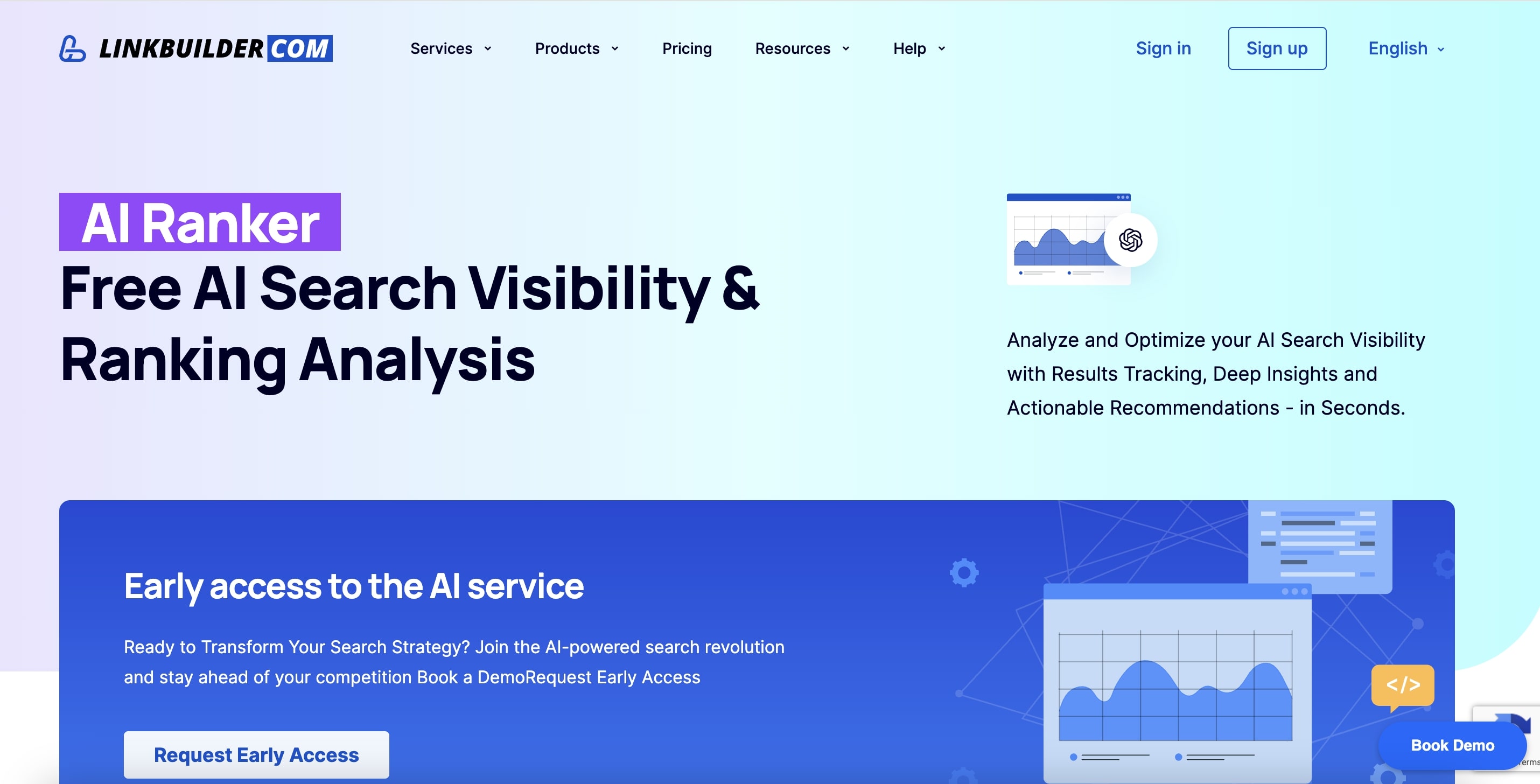
- Exploding Topics – identifies rapidly growing trends based on search query and content analysis.
Subscription Price
- Entrepreneur – $39/month; Investor – $99/month; Business – $249/month
Cons:
- The Entrepreneur plan allows tracking up to 100 trends, which may not be sufficient for large projects or agencies.
- Higher plans are valued for analytics and export features. The basic level may lack sufficient capabilities.
- AlsoAsked – builds graphs of related questions from Google and helps predict which topics are likely to gain popularity.
Subscription Price
- Basic $12/month, Pro from $47/month
Cons
- The Basic plan offers a limited number of queries and exports only in CSV format.
- Does not include search volume or CPC data.
- Google Trends with AI enhancements – includes additional analysis from AI services, such as parsers or ChatGPT plugins.
Subscription Price
- Free
Cons
- No official API and no formal guarantees on the number of queries – limitations may occur with frequent use.
- Does not show exact search volume without third-party tools, only relative indicators.
- Frase – AI for generating SEO content and query analysis, including popular questions and content gaps.
Subscription Price
- Starter $38/month, Advanced $297/month
Cons
- The Starter plan limits projects, offering only 15 content projects per month for free, which may not be enough for active writers or agencies.
Metrics and Analytics
When you implement AI in search engine optimization processes, it’s essential not only to automate routine tasks but also to understand how to evaluate the effectiveness of these tools. Classic metrics, such as traffic and rankings, remain relevant, but new methods of analysis emerge when combined with AI.
AI in technical SEO, content optimization, and link building can monitor dozens of parameters in real-time, detect anomalies, and even recommend specific actions. These are not just reports – these are intelligent SEO solutions that learn from your data.
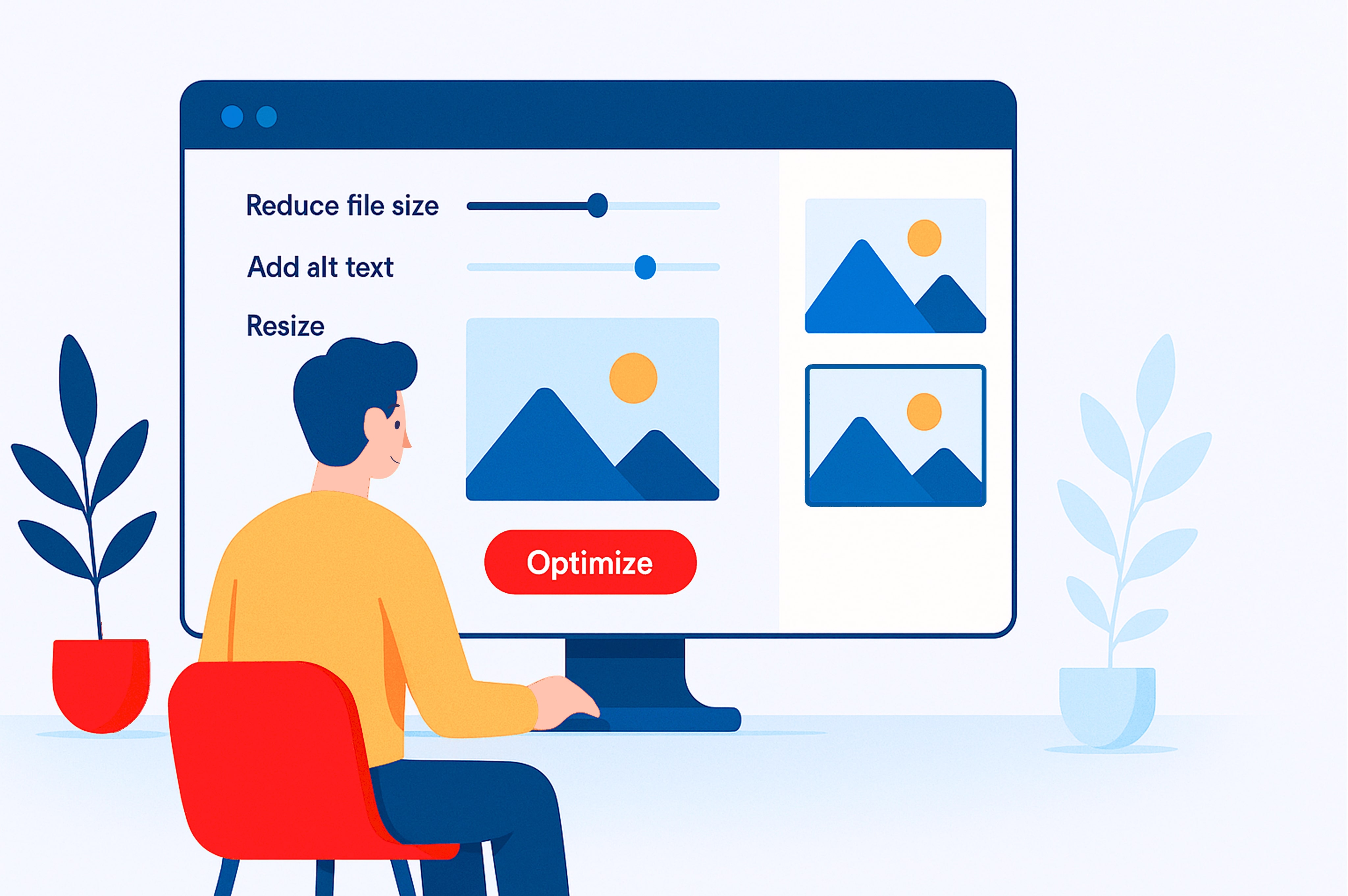
Key SEO Metrics Enhanced by AI
- Search Visibility – overall site visibility in search: AI identifies patterns of decline or growth
- CTR by Keywords – models analyze where exactly user attention is lost
- Average Position with Forecast – AI can predict position changes based on competitor dynamics
- Indexing and Errors – neural networks track what prevents pages from being indexed
- Content Quality – evaluation of texts for readability, intent alignment, and query relevance
- Traffic by Segments – AI-powered SEO tools segment traffic into clusters: branded, informational, commercial
| Metric | What it shows | AI Tool | How to use |
|---|---|---|---|
| Search Visibility | Share of site visibility in search results | SeRanking | Compare with competitors, identify drops |
| Traffic Dynamics | Changes in organic traffic | Google Analytics + ChatGPT | Interpreting sudden increases or decreases in metrics |
| Keyword Positions | Average and actual positions for target queries | Semrush + AI modules | Track growth/decline after changes |
| CTR | How effectively snippets work | Ahrefs + GPT analytics | Improve titles and meta descriptions |
| Content Gaps | Which topics are not covered on the site | Frase | Generate SEO content for uncovered topics |
| Time on Page | How well content holds attention | Plerdy + AI interpreter | Optimize structure and interactivity |
| Link Profile | Quantity and quality of external links | Linkody + AI | Monitor link-building effectiveness |
To get the most out of automated SEO solutions, set up systematic reporting: let AI send a weekly dashboard with key metrics and recommendations. This will allow you to focus on strategy rather than manual data checking.
Tip: Combine online SEO tools and AI assistants (such as ChatGPT, Claude, Perplexity) to create custom reports tailored to business needs.
The Future of AI in SEO
Expected Innovations in AI for SEO
The development of AI in SEO is not just continuing – it’s accelerating. Today, we are already seeing advanced AI-powered SEO tools perform tasks that previously required a team of specialists. But what does the future hold?
Trends and technologies shaping the future of SEO:
- Generative Search (SGE). Google is actively integrating AI summaries into search results. This means the competition is not only for the top spot but also for inclusion in AI-generated summaries.
- Full integration with voice search. Content will adapt to conversational query structures and intonations.
- Deep semantic optimization. Neural networks will better understand intent, context, and query sentiment, requiring sites to produce more “human-like” content.
- Automated internal linking with AI – the system will not only suggest but also place links in appropriate locations without human intervention.
- AI for multimodal SEO. Optimization of not just text, but also video, images, and audio, considering visual search and YouTube SEO.
- Personal AI assistants for SEO specialists , trained on data specific to a site or niche.
It is also expected that neural networks for SEO promotion will be more actively integrated into CMS and platforms, automatically analyzing and optimizing pages in real time.
How to Prepare for the Future of SEO
Transitioning to AI in search optimization requires flexibility and a willingness to adapt and learn. It’s essential to consider not only content but also data structure, response speed, and constant adaptation.
What to do now:
- Implement flexible AI SEO optimization tools – those that are easily scalable and adaptable to trends.
- Keep track of search engine updates , especially regarding AI and ranking.
- Optimize for natural language – AI-powered SEO text generators can help create content that is understandable to both humans and algorithms.
- Invest in multimedia content – videos, infographics, and voice prompts.
- Learn to work with data – knowledge of analytics and using AI for position and traffic analysis will become essential skills.
- Prepare the infrastructure – from CMS to internal analytics, everything should be ready for SEO automation with AI.
Checklist: Preparing for the Future of SEO
- Using AI tools for content generation and optimization
- Analyzing audience behavior through AI analytics
- Optimizing content for SGE and voice search
- Integrating neural networks into the link-building process
- Regularly updating strategies considering AI trends
AI tools for SEO are not just programs; they are part of a strategic approach. Those who start adapting today will gain a competitive advantage shortly, especially in the face of Google’s evolving algorithm.
Practical Cases and Examples
Successful Examples of AI in SEO
To better understand how AI tools for SEO work in practice and how AI assists in site promotion, it’s worth examining real-life cases of companies that have already implemented neural networks and achieved tangible results.
- AI-SEO by The Search Initiative. +2300% traffic
The Search Initiative implemented an optimization strategy for "AI Overviews." As a result, the client experienced a 2300% increase in traffic and appeared in results for about 90 keywords – previously, there were none at all.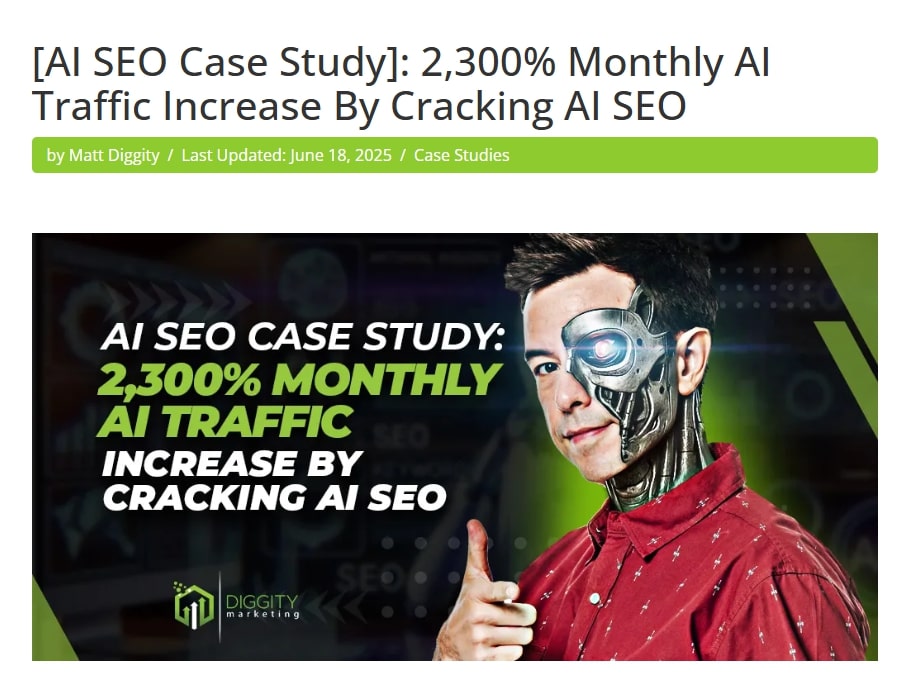
- Flyhomes and programmatic SEO
Recently, the Flyhomes platform increased the number of pages from 10,000 to 425,000 in just 3 months, using AI-generated landing pages. A similar approach was applied by Transit (increasing pages from 300 to 21,000).
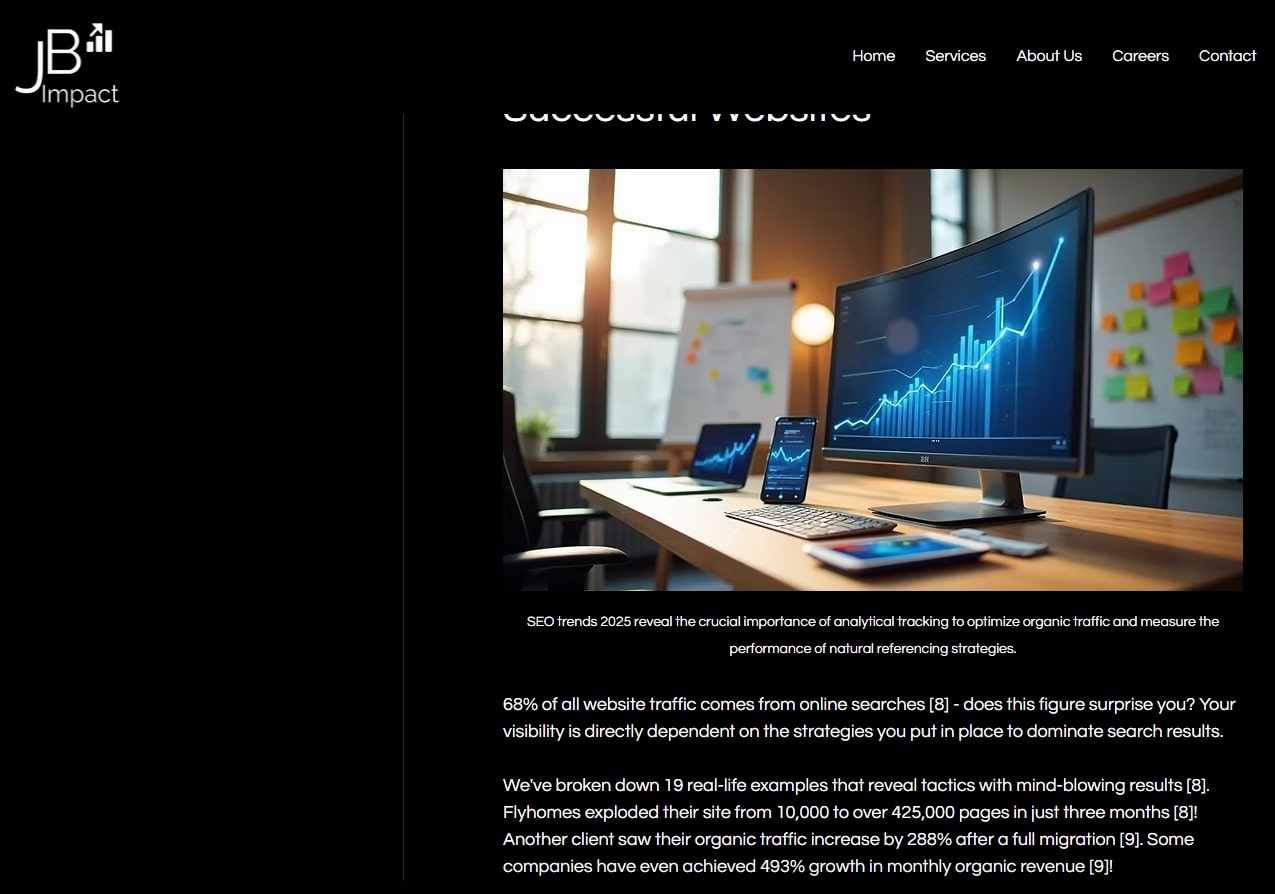
- WordLift – case studies with up to 80% traffic growth
The WordLift platform demonstrated an increase in organic traffic:
- +80% for a real estate site (Randy Selzer)
- +27% clicks for glasses.com
- +16% clicks for EssilorLuxottica
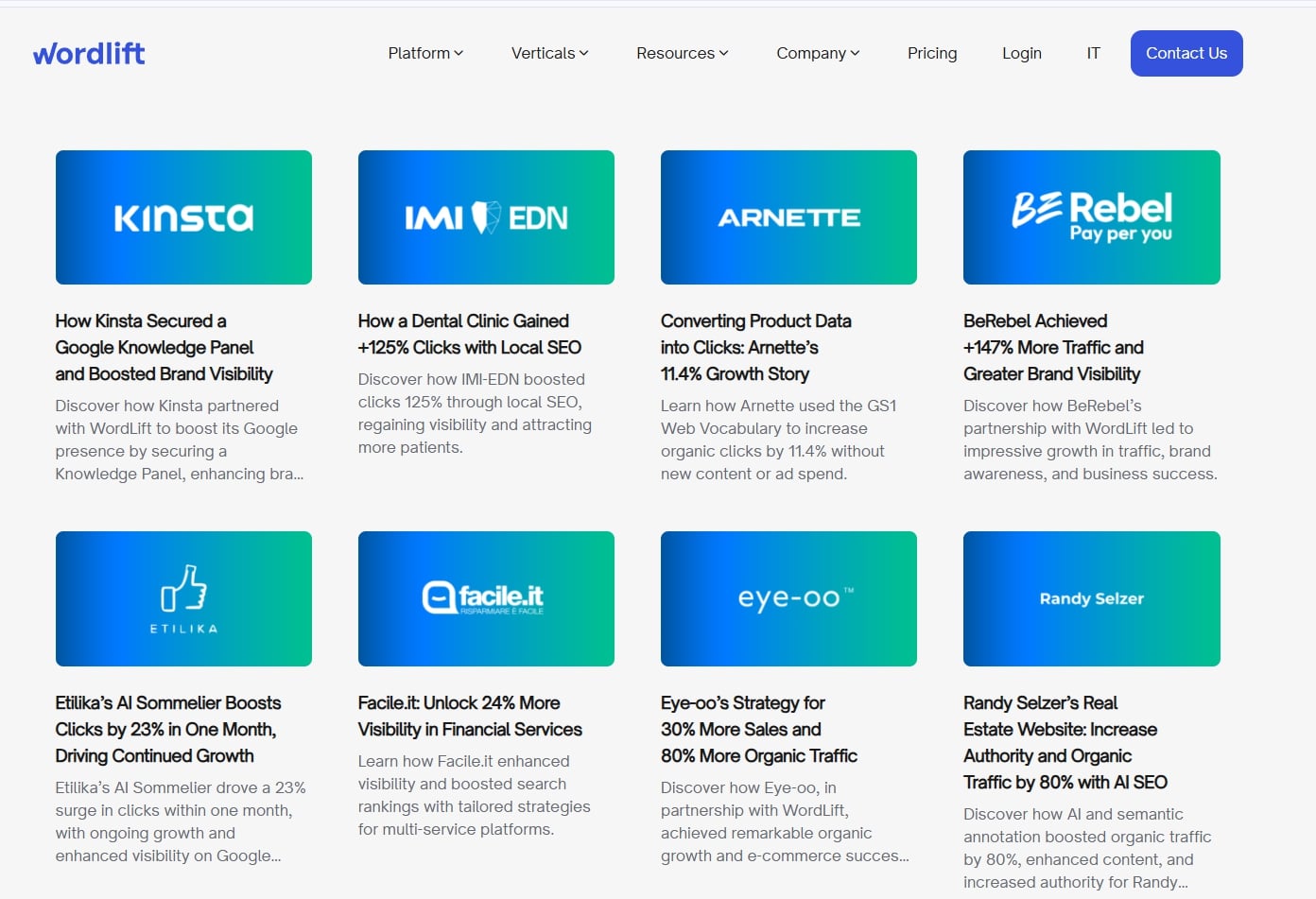
What AI Brings to SEO in Practice
Task Before AI Implementation After AI Implementation Time to Prepare an Article 8-16 hours 4-8 hours Speed of Creating New Pages 3–5 per week 20–50 per week Volume of Organic Traffic Slow growth Increase of 25% in 3–6 months Quality of Texts (by Intent) Unstable High Relevance Number of New Ideas/Clusters Manually Limited Automatic Generation of Dozens of Topics
Mistakes and Lessons
AI-powered SEO tools open up numerous new opportunities, but they also come with common pitfalls. Some are related to overestimating the technology, while others are related to incorrect implementation. To ensure AI truly delivers results, it’s essential to understand where failures occur and what to do about them.
Common Mistakes When Using AI in SEO
- Blindly Copying AI-Generated Text
Many people use AI SEO content generators as their final source without verifying the logic, structure, and facts. This results in raw, unstructured, or duplicate content.
- Lack of Strategy
AI tools are powerful, but they are ineffective without a clear goal. It’s common to see various services being used “a little bit here and there” without a systematic approach.
- Focusing Solely on Rankings and Frequency
AI for SEO optimization can analyze user behavior, intent, and engagement; yet, many continue to focus only on keywords without adapting content to meet real needs.
- Insufficient Attention to Technical SEO
AI for traffic and content analysis is being implemented, but basic things are forgotten: loading speed, canonical tags, site structure, internal linking. AI won’t fix technical errors on its own.
- Ignoring Human Editing
Even smart SEO services do not replace an editor. Without review, AI may create repetitions, confusion, or overly generic phrases.
How to Avoid Mistakes
- Validation and Editing: After generation, ensure that you edit the texts. AI is a draft, not the final version.
- Strategy Development: Determine why you are implementing AI – for acceleration, expansion, analytics, or automation.
- Combining Tools: Do not rely on a single service. For example, use Frase for generation, Clearscope for optimization, and SeRanking for monitoring.
- Maintain Control: Automated SEO solutions are most effective when you have control over them. Avoid “working by intuition.”
- Team Training: If you work in a team, conduct basic AI training to prevent repeated mistakes.
Checklist: Safe AI Use in SEO
- Content is unique and does not appear “machine-generated”
- Facts, data, and examples are verified
- Goals and objectives for AI implementation are clarified
- The optimal tool is selected for each task
Conclusion
Artificial intelligence has firmly established itself in the toolkit of SEO specialists. By 2026, SEO AI tools are being used for a wide range of tasks, from analysis to forecasting, content generation, and technical audits. Throughout the article, we’ve examined how to use AI in SEO, which services truly deliver results, and what changes to expect in the near future.
Key Points:
- Neural networks for SEO promotion help identify trends faster and adapt strategies.
- AI-driven SEO text generators speed up content work and increase relevance.
- Next-generation SEO tools provide deeper analytics and targeted recommendations.
- AI for position and traffic analysis eases monitoring and accelerates response to changes.
- Intelligent SEO assistants are especially useful when scaling projects.
Recommendations for Implementing AI Tools
- Identify key tasks where AI can be beneficial: content generation, competitor analysis, topic selection, technical audit.
- Choose reliable solutions:
- Content: Jasper, Frase, NeuronWriter
- Analytics: Surfer, Clearscope, Semrush, AI Ranker – a free AI service for search visibility and ranking analysis
- Trends: Exploding Topics, AlsoAsked
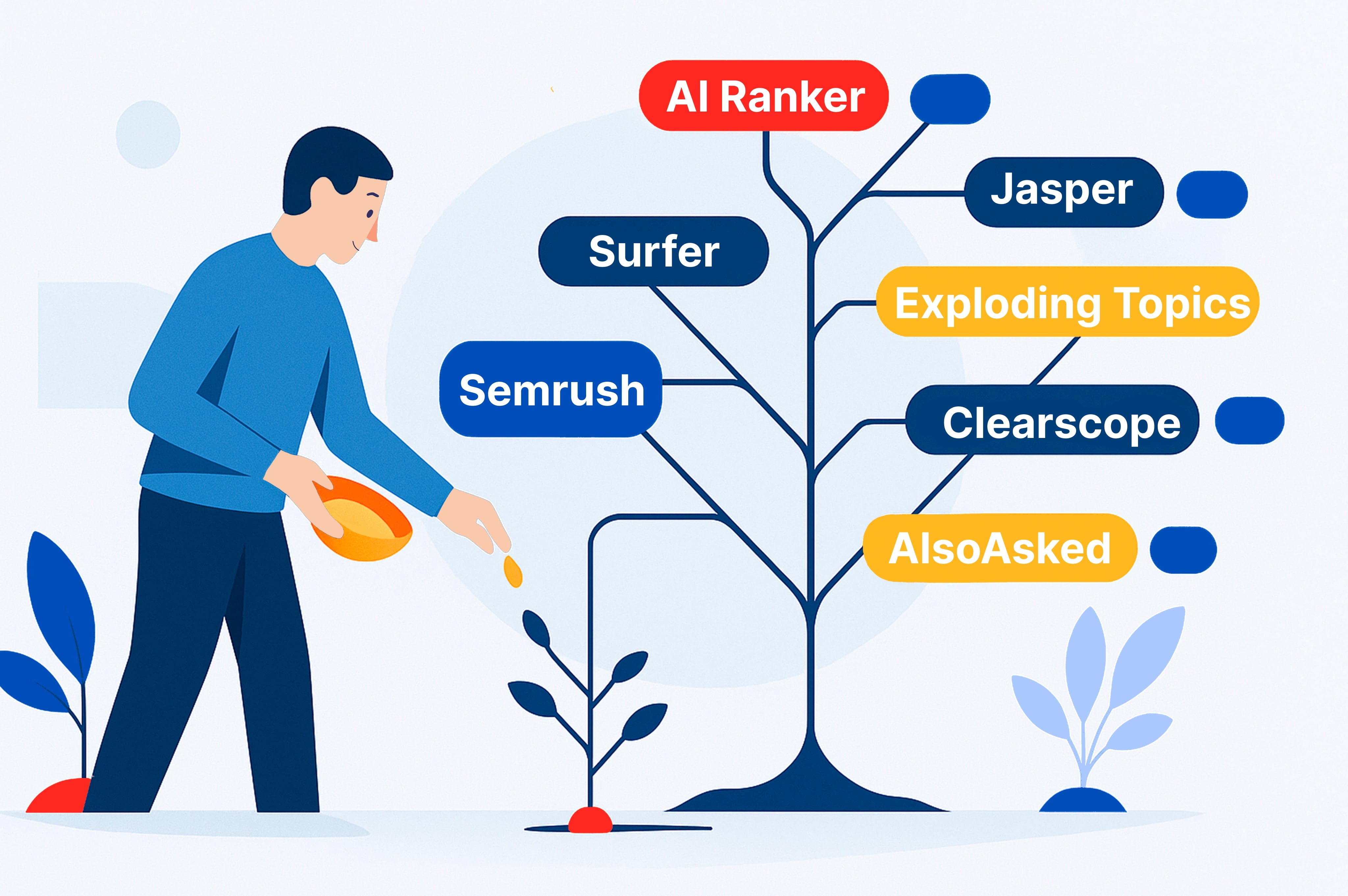
- Implement gradually: start with one area – for example, content planning automation or search demand analysis
- Maintain control: AI is an assistant, not a replacement. Key decisions still rest with you
- Keep track of tool development: AI services are evolving rapidly, and new capabilities are emerging regularly
You can already subscribe to our tools and gain early access to AI Ranker – a service that helps you quickly analyze search visibility, identify growth opportunities, and make more informed SEO decisions.
